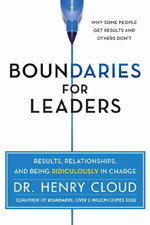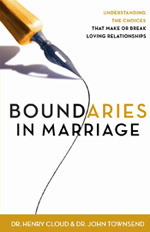Henry Cloud's Blog, page 33
April 14, 2014
The Cure for the “Can’t Be Done” Virus
It was the Fourth of July and I (Dr. Cloud) was at a celebration that included a memorial “paddle out” on surfboards in the Pacific Ocean to honor and remember my brother-in-law, Mark. He was a Navy SEAL, a great American, husband, father, hero, brother, and a friend. Mark died on a mission in Iraq in 2008.
My ten-year-old daughter Olivia, wanted to participate in the paddle-out to honor her uncle. So, we borrowed a surfboard and began to walk out to the beach where the surfers were gathering, with me carrying the board. I was excited for her to take part in honoring her uncle Mark and was inspired by her fearlessness in wanting to paddle way out into the ocean with all the adults. She did just great and when we came back to the beach we hugged.
She was very proud and thankful for her uncle Mark and we spent a moment talking about all of it before everyone gathered their things to make the long walk back up the hillside to the main event. Everyone, that is, except Olivia and a few other people who had decided to go back into the ocean and catch some waves.
She said to me, “Daddy, I want to stay here and go back out. I will come up and join you guys later.”
“No, Livi. I’m sorry but you can’t. Who will walk back up with you? You can’t walk all the way back by yourself with just your cousin. Sorry,” I said. I did not want her in the commotion by herself at her age, and also, there was no way that she could get that big surfboard all the way back uphill.
“But it’s fine, Daddy,” she said. “There are some adults coming too, and the have to walk back. I will walk with them.”
“No, Livi, just come with me now. It will be a lot less complicated,” I said. Then I played my trump card. “Besides, the surfboard is way, way too heavy for you to carry back. They all have their boards and won’t be able to carry it for you, and I can do that if you come now. If you don’t come with me, how would you ever get it back up the hill?” At this point, I thought I had her.
“Dad!” she said forcefully. “I WILL find a way.”
Those words pierced my heart. I literally had to stop talking as I felt tears welling up in my eyes. It was true: she would FIND a way. Because that’s who she is. The tears I felt were more than just a moment of being proud of her. The tears were that I literally, and I mean literally, felt something happen inside of me. At that moment, I somehow got assured of her future in life.
As a psychologist, I know that there are two kinds of people in the word. People whose circumstances overcome them, and people who overcome their circumstances. As the psychologist, I did not just hear “I will find a way to get the surfboard back.” I heard something automatically coming from her innermost being, from the operating system that made her who she was—the kind of person who says, “I will find a way.”
I knew that mode of thinking would serve her for life, no matter what her future circumstances might be. I knew that she will always “find a way.”
“OK, Livi,” I said. “Have fun.”
“Bye, daddy.” and she waved as she ran to join the group. I did not worry one iota, and in a couple of hours, she and the big heavy surfboard were back where they belonged.
Research has revealed time and again that a belief that one will be successful is one of the strongest predictors of goal achievement. Great leaders build this belief into their people, teams, and culture. They believe that they can do it, and when things get tough, they find a way. They exert what I call “optimistic control,” even in environments where there are many negative realities that they cannot control.
 Is the “Can’t Be Done” virus infecting your personal life, your organization, or your workplace? Discover solutions that work in Boundaries for Leaders by Dr. Henry Cloud.
Is the “Can’t Be Done” virus infecting your personal life, your organization, or your workplace? Discover solutions that work in Boundaries for Leaders by Dr. Henry Cloud.
The post The Cure for the “Can’t Be Done” Virus appeared first on Boundaries Books.
April 10, 2014
The Purpose of Boundaries
 What is the actual purpose of boundaries? We can find an interesting answer in the biblical passage of Mark 7:14 – 23:
What is the actual purpose of boundaries? We can find an interesting answer in the biblical passage of Mark 7:14 – 23:
Jesus called the crowd to him and said, “Listen to me, everyone, and understand this. Nothing outside a person can defile them by going into them. Rather, it is what comes out of a person that defiles them.” After he had left the crowd and entered the house, his disciples asked him about this parable. “Are you so dull?” he asked. “Don’t you see that nothing that enters a person from the outside can defile them? For it doesn’t go into their heart but into their stomach, and then out of the body.” (In saying this, Jesus declared all foods clean.) He went on: “What comes out of a person is what defiles them. For it is from within, out of a person’s heart, that evil thoughts come—sexual immorality, theft, murder, adultery, greed, malice, deceit, lewdness, envy, slander, arrogance and folly. All these evils come from inside and defile a person.”
Jesus’ explanation reveals how boundaries help us define who we are and are not. Through them we can take ownership of all of who we are, both good and bad. It is only by taking full ownership of what is on our property and within our own boundaries that we can grow.
Mark 7:14-23 is a great description of some of the “not so good” stuff that hangs out in our hearts. All property needs to be cleaned up every once in a while, and our hearts are no different. Jesus tells us that our hearts are in need of this kind of responsible “cleaning up.”
Every kind of growth system that works, from counseling to spiritual direction to recovery, involves looking past our outer behavior to the root causes that lie within our hearts. Sometimes, pain and hurt are to blame and sometimes, as this passage indicates, sinful attitudes and desires are the root causes. Whatever the case, God has forgiven us and that forgiveness gives us the freedom to take a real, hard look at what lies within our hearts. The reward for doing this is that we get healthy and life gets better.
That’s why we like to say that boundaries make life better!
 Find more insightful commentary from Drs. Henry Cloud and John Townsend, read the NIV Life Journey Bible, which combines the world’s most accessible Bible translation with exclusive boundaries teaching.
Find more insightful commentary from Drs. Henry Cloud and John Townsend, read the NIV Life Journey Bible, which combines the world’s most accessible Bible translation with exclusive boundaries teaching.
The post The Purpose of Boundaries appeared first on Boundaries Books.
April 7, 2014
The Two Types of Liars
 The ability to build a healthy relationship is based on the degree to which you are able to be clear and honest about everything, especially in a dating situation. Sometimes, people will deceive each other about the nature of other people in their lives. They may act like someone is “just a friend,” when in reality there is more of a history or more in the present than is being said.
The ability to build a healthy relationship is based on the degree to which you are able to be clear and honest about everything, especially in a dating situation. Sometimes, people will deceive each other about the nature of other people in their lives. They may act like someone is “just a friend,” when in reality there is more of a history or more in the present than is being said.
For example, I (Dr. Cloud) was working with a man named Frank who was trying to figure out his relationship with the woman he was dating. He had a funny feeling that something was wrong. It seemed that she was just a little too connected to her work. Frank had no problem with her loving her job, but there was something strange about her relationship with her boss. He did not think that she was dating him, or having any kind of illicit thing going on with him. But, he still got a funny feeling about her work and her connection with her boss.
Finally, Frank found out that his girlfriend had once been engaged to her boss. And, there was still some sort of continuing tie between them. But, as far as he had known, it was strictly a work relationship. Instead, she had been lying to him.
Frank felt horribly deceived, and from there the relationship went downhill. It did not falter because she worked with a former boyfriend, but because she had not been clear about the nature of her former relationship with her boss. Frank could sense some sort of tie that she was not owning up to. Later, when some other issues came up where she had not been clear with him, the relationship died. If she had not been deceptive about the former boyfriend, the later issues would not have been a big deal. But, once a pattern of lying starts, trust is difficult to reestablish.
Why do people lie, and how can you set appropriate boundaries? In our opinion, there are really two types of liars:
Liar Type 1:
There are liars who lie out of shame, guilt, fear of conflict or loss of love, and other fears. They are the ones who lie when it would be a lot easier to tell the truth. They want to be honest, but for one reason or another, cannot quite pull it off. They fear the other person’s anger or loss of love.
Liar Type 2:
There are liars who lie as a way of operating and deceive others for their own selfish ends. There is no fear or defensiveness involved, just plain old lying for love of self.
You will have to ask yourself if you want to take the risk and do the work if you are with the first type. There are people in the first category who have never had a relationship where they felt safe enough to be honest, and they tend to still be hiding. So, they lie to preserve love, or preserve the relationship, or avoid being caught in something because of guilt or shame. They are not really dangerous, evil characters, and sometimes when they find someone safe, they learn to tell the truth. This is a risk that some people want to take after finding out that deception has occurred. They hope that the person will be redeemed by the grace and love that they offer and will shoot straight with them from then on.
While we would not automatically recommend continuing a dating relationship with this kind of person, sometimes there is a good outcome. So, we do not want to make a rigid rule. But, our feeling is that dating is not a place for you to rehabilitate people. Rehabilitation should occur in that person’s counseling, recovery, discipleship, or some other context. For one thing, dating can become serious when your heart gets involved, and it may even lead to marriage.
Just because the person is lying out of fear does not make it acceptable, and serious devastation can occur even with fearful liars. No matter what the reason, lying destroys. By and large, the best policy is to stay away from those who lie for any reason.
Spend your time and heart on honest people. It is often too risky, from our perspective, to get involved with the fearful liar. If the person gets better and comes back repentant, that is one thing. But, you should not think that you are going to be the one who changes him or her if defensive lying is an ongoing pattern. There are some people who do this on occasion and confess it, and probably can be trusted over the long haul. But, patterns of this type are problematic. Whatever you decide to do, whether you stick in there or not, make sure that you do not go further until the lying issue is forever and certainly in the past. Remember the words of the wise instructor: Do not go on to other issues until the lying is solved.
The second kind of liar is a definite no-go. Tell him or her good-bye and save yourself a lot of heartache. Perpetual liars are not ready for a relationship, no matter how much you are attracted to him or her. Run, run, run!
A footnote: After Frank ended the relationship with his girlfriend, she soon was back with her former boyfriend (and boss). I told my client I thought he was lucky to have escaped her.

For more helpful advice to build the best dating relationship and find the love of your life, read Boundaries in Dating.
Image courtesy of Stuart Miles via FreeDigitalPhotos.net
The post The Two Types of Liars appeared first on Boundaries Books.
April 3, 2014
How To Deal With An Unteachable Person
Recently, Dr. Henry Cloud was asked on his Facebook page to answer the frustrating question:
How do you deal with people who are unteachable?
Enjoy this short video and the insights that Dr. Cloud offers.
Post by Henry Cloud.
The post How To Deal With An Unteachable Person appeared first on Boundaries Books.
March 31, 2014
The Problem With Two Mommies and Two Daddies
 When children come into the world, they are confused about the nature of their relationships. They do not think they are dealing with one person. In their minds, there are two mommies, not one. Or, two daddies, not one. There is the “good” mommy and the “bad” one.
When children come into the world, they are confused about the nature of their relationships. They do not think they are dealing with one person. In their minds, there are two mommies, not one. Or, two daddies, not one. There is the “good” mommy and the “bad” one.
The good one is the one who gratifies them. When they are hungry or needy, they protest, and the good mommy comes and relieves their stress. When they are gratified, they see this mommy as “good.” But if something they want is not forthcoming and Mommy frustrates their wish, she is seen as the “bad” mommy. You may even remember this literally happening. It is not unusual for a child to hear “no” and say, “Bad Mommy.” This split is universal.
Some adults have still not resolved this problem. If you do what they want, they are very loving and see you as a good person. But if you say “no” to them, they see you as bad for not giving them what they wanted. Then when you gratify them, you are seen as good all over again.
The other side of this is what goes on inside children. When they are getting what they want, they see themselves as entitled to what they are receiving; when they are being frustrated, they see themselves as victims of the “bad mom.” So not only do they see two mommies, but they also experience two selves as well: the entitled self and the deprived self. You can probably remember seeing this in very young children. When happy, they are very happy. When angry or sad, they are very angry or sad.
But as children experience both having their needs met and being frustrated with limits, they slowly merge the two images of themselves and others. They slowly realize a few extremely important things:
My needs are consistently responded to.
Not all my needs and wants are gratified.
The same person is both giving to me at some times and depriving me at other times—the one I love is the one I hate.
I am fortunate at times, and at other times I have to deal with being frustrated.
As this combination of gratification and frustration occurs a few million times, children gain a secure sense of the world’s being “not perfect” in gratifying them all the time, but “good enough” in giving them what they need. They slowly give up their wish for the “all-good other” who is going to meet all their needs perfectly and learn to love the one who both loves them and frustrates them. And they decide people are not perfect, but good enough. Children endure enough frustration to become grateful for what they receive as they find out they are not entitled to everything they want
To accomplish this task, children need two important things from you: gratification and frustration. Children who are never gratified are in a constant state of need, and they will never feel grateful because they literally have not gotten enough. This is the danger of parenting systems that overemphasize depriving the child early in life for fear that the child will control the home. Children must have their needs met to develop trust and gratitude. As the Bible says about us and our Father in heaven, “We love because he first loved us” (see 1 John 4:19). We need to be given to first.
But children who are never frustrated never understand that they are not the center of the universe, that they are not owed whatever they want, and that others do not exist only for their needs. The balance of gratification and frustration tempers the extremes of neediness and entitlement.
The child who experiences frustration gives up the view that he’s entitled to everything he wants and that others should perform for him. In addition, he doesn’t see himself as a victim when he’s deprived, nor does he see others as bad when they do not do what he wants. He develops a balanced view of himself and others.
 Learn how to instill the kind of character in your children that will lead to a balanced, productive, and fulfilling life in Boundaries with Kids.
Learn how to instill the kind of character in your children that will lead to a balanced, productive, and fulfilling life in Boundaries with Kids.
Image courtesy of David Castillo Dominici via FreeDigitalPhotos.net
The post The Problem With Two Mommies and Two Daddies appeared first on Boundaries Books.
March 28, 2014
Dr. Henry Cloud and Dave Ramsey Talk About Boundaries – Part 2
In this video, Dr. Henry Cloud visits The Dave Ramsey Show as a guest to talk about one of Dave’s all-time favorite books, Boundaries. Don’t miss the hilarious line at 6:45 minutes into their discussion!
FYI – If you live in the Dallas / Fort Worth, Texas area, don’t miss Henry and Dave together on Saturday, March 29th at the Smart Conference. Only a few seats remain! Get your tickets today.
The post Dr. Henry Cloud and Dave Ramsey Talk About Boundaries – Part 2 appeared first on Boundaries Books.
March 27, 2014
Dr. Henry Cloud and Dave Ramsey Talk About Boundaries
In this video, Dr. Henry Cloud visits The Dave Ramsey Show as a guest to talk about one of Dave’s all-time favorite books, Boundaries.
If you live in the Dallas / Fort Worth, Texas area, don’t miss Henry and Dave together on Saturday, March 29th at the Smart Conference. Only a few seats remain! Get your tickets today.
Click here to watch Part 2 of this insightful video with Dr. Henry Cloud and Dave Ramsey.
The post Dr. Henry Cloud and Dave Ramsey Talk About Boundaries appeared first on Boundaries Books.
March 24, 2014
The Boundaries Secret to a Successful Marriage
 When two people marry, two lives blur together to make a new one, two become one. The blurring of expectations and feelings can become an issue. Many times a spouse will automatically expect that the love in the marriage means that her spouse will always see things her way. She may feel unloved when her otherwise-loving mate says, “No, I’d rather not take a walk. I’m sleepy.” Sometimes this happens during the “honeymoon period,” when both parties tend to see eye-to-eye on everything. But when the reality of two different wills, needs, and perspectives comes in, the honeymoon is over. This is when the Law of Respect must be applied.
When two people marry, two lives blur together to make a new one, two become one. The blurring of expectations and feelings can become an issue. Many times a spouse will automatically expect that the love in the marriage means that her spouse will always see things her way. She may feel unloved when her otherwise-loving mate says, “No, I’d rather not take a walk. I’m sleepy.” Sometimes this happens during the “honeymoon period,” when both parties tend to see eye-to-eye on everything. But when the reality of two different wills, needs, and perspectives comes in, the honeymoon is over. This is when the Law of Respect must be applied.
For example, a couple with whom my wife and I (Dr. Cloud) are close, Nick and Colleen, mentioned the same problem at dinner one night. Nick said, “Sometimes Colleen withdraws from me for no reason at all.”
“There is a reason,” Colleen replied. “When I try to say no to you and you try to control me, I withdraw.” Nick said, “I don’t try to control you when you say no.” Colleen let it go and said, “I guess we have a difference of opinion.”
The conversation drifted to other subjects. Later that evening, Nick invited me to a ball game a couple of weeks from then. I checked my schedule and said, “Sorry, I can’t.” Nick threw up his arms in mock exasperation and said, “Oh, come on, you can go! Just rearrange things a little. That’s what friends do.”
Colleen had been watching, and she yelled, “There it is! There it is! That’s how he controls my no!” Nick looked surprised and said, “I do what?”
“She’s right, Nick,” I said. “I felt the pressure of not being able to say no.” The light went on for Nick as he saw how his desire for good things sometimes crossed the line of respect.
When you apply the Law of Respect in your marriage, don’t storm into the living room with a list of “how things are going to change around this house.” Tell your spouse you want your boundaries respected, and ask him if he feels his are being respected also. Let him know that you value and desire him to be free to say no, even if you don’t like the answer. Ask him some of the following questions:
How might I be crossing your boundaries?
Do you feel I respect your right to say no to me?
Do I give you guilt messages, withdraw, or attack you when you set a limit?
Will you let me know the next time I don’t respect your freedom?
These humbling and uncomfortable questions show you are concerned for your spouse more than for your own convenience. They arise out of self-sacrifice, and they show your generosity of spirit and love. And they can bind your marriage together.
If your spouse is trustworthy, it is easier to ask these questions. If your spouse is untrustworthy, you may feel you are putting yourself in the hands of someone who might use your respect for him against you. However, even untrustworthy people need to have their legitimate needs and boundaries respected. This doesn’t mean, though, allowing yourself to be harmed if the spouse is unsafe. Respect his boundaries and still set limits on his untrustworthiness.
An example of this balance is how a wife might approach her rageaholic husband. She should not dictate to him that he can’t be angry; she should respect his freedom to protest what he does not like. At the same time, however, she might tell him, “Your raging way of being angry is not acceptable to me. If you don’t find other ways of being angry with me, I will have to distance from you.”
Respecting and valuing your mate’s boundaries is the key to being close and loving. Your spouse experiences the gift of freedom from you and sees the love you are extending in giving this freedom. When you respect your spouse’s boundaries, you are paving the way to having yours respected.
 Learn how to help your marriage flourish by reading Boundaries in Marriage.
Learn how to help your marriage flourish by reading Boundaries in Marriage.
The post The Boundaries Secret to a Successful Marriage appeared first on Boundaries Books.
March 20, 2014
The Benefit of Suffering and Setting Boundaries
1 Peter 4:1-2 - “Since Christ suffered in his body, arm yourselves also with the same attitude, because whoever suffers in the body is done with sin. As a result, they do not live the rest of their earthly lives for evil human desires, but rather for the will of God.”
Sometimes, growth means that we have to take some hard, painful steps. For example, the apostle Peter changed from a man who avoided suffering to one who valued it. In the beginning he did not value the idea of suffering. When Jesus told his disciples that he was going to suffer and die, Peter rebuked Jesus and said there was no need for that (see Matthew 16:21–23). Jesus promptly replied, “Get behind me, Satan! You are a stumbling block to me; you do not have in mind the concerns of God, but merely human concerns.”
Jesus taught a profound lesson on the value of suffering: “Whoever wants to be my disciple must deny themselves and take up their cross and follow me. For whoever wants to save their life will lose it, but whoever loses their life for me will find it” (see Matthew 16:24–25). Jesus calls his followers to embrace suffering.
And Peter learned this lesson. The same Peter who thought suffering and death should not be included in the plan later said, “Since Christ suffered in his body, arm yourselves also with the same attitude, because whoever suffers in the body is done with sin.”
Peter came to see suffering as armor! He came to see suffering as protection against sin. He came to see that if we go through the suffering we need to go through, then we are “done with sin” (or at least the sin that had to do with that particular growth step).
The process of growth means taking some painful steps. But, in submitting to that kind of suffering, we reap the benefit in the end. Working out a difficult relationship, for example, is not easy. We might have to suffer the hard steps of opening up, facing conflict, etc. Overcoming an addiction usually requires facing the pain that is driving the behavior. But if we face these kinds of suffering, we move past the issues and are on to a better life. We can get done with whatever is holding us back. Just as an athlete embraces “no pain, no gain,” those who want to grow personally have to sometimes go through some hard steps to get there. But it is worth it.
Boundaries make life better!
 Find more insightful commentary from Drs. Henry Cloud and John Townsend, read the NIV Life Journey Bible, which combines the world’s most accessible Bible translation with exclusive boundaries teaching.
Find more insightful commentary from Drs. Henry Cloud and John Townsend, read the NIV Life Journey Bible, which combines the world’s most accessible Bible translation with exclusive boundaries teaching.
The post The Benefit of Suffering and Setting Boundaries appeared first on Boundaries Books.
March 17, 2014
Why Teens Should Get Angry With Parents
 Adolescents get angry a lot. They live in protest mode, so it is second nature for them to get mad at everything in the world, especially their parents. But some parents are conflict-phobic — they are uncomfortable and afraid of being the object of their teen’s wrath, and so they avoid setting boundaries with their teen.
Adolescents get angry a lot. They live in protest mode, so it is second nature for them to get mad at everything in the world, especially their parents. But some parents are conflict-phobic — they are uncomfortable and afraid of being the object of their teen’s wrath, and so they avoid setting boundaries with their teen.
However, this teaches adolescents that if they throw a tantrum, they can get out of a limit. Teens who learn this will also have difficulty experiencing healthy adult relationships. To help your child avoid this relational future, you’ll want to teach him to accept responsibilities in relationships without having outbursts.
Many parents who fear their teen’s anger have either had little experience in dealing with anger or had some very negative experiences. Whichever the case, these parents have few tools to deal with angry people, so they avoid confronting them because it’s too uncomfortable.
If this is your struggle, in addition to fearing your teen’s anger, you may also fear the strength of your own anger. To resolve this fear, learn to experience and normalize anger — your own and others’ — as a part of life. Make this an intentional item of growth for yourself.
You can get used to angry feelings by dealing with them in your own supportive relationships. Tell others about your discomfort with anger, and practice expressing your anger in safe relationships. Also learn how to listen while others express their anger. Instead of panicking or fearing the worst, focus on what the person has to say and then have a conversation about it. The book, How to Have That Difficult Conversation You’ve Been Avoiding, may be a good resource for helping you learn how to have healthy, confrontational conversations so that you can work through your fear of anger.
If your teen is never angry with you, you’re probably doing something wrong! So let your teen get mad at you, and stay present with her, as long as she is in some sort of control of herself. Remind yourself that when parents hold to the established limits, adolescents respond in anger. This is normal. If you can stay with your teen’s anger and still love her while holding the line, she can more readily learn to give in and let go of her anger, which is a major step toward maturity. The task is to stay connected to your teen even while she is angry, and yet still hold the line. With this approach, she can more readily accept your limit and give up her angry protest of your rules.
Fear doesn’t have to paralyze you so that you can’t set limits with your teen. The more you work out your own struggles with these unhelpful emotions, the better equipped you will be to help your teen experience and accept your love and your limits.
 Learn more ways to help your teen grow into a mature, responsible adult by reading Boundaries with Teens.
Learn more ways to help your teen grow into a mature, responsible adult by reading Boundaries with Teens.
For additional help with anger issues in children, read our free resource: Tame Your Child’s Temper Tantrum.
The post Why Teens Should Get Angry With Parents appeared first on Boundaries Books.



